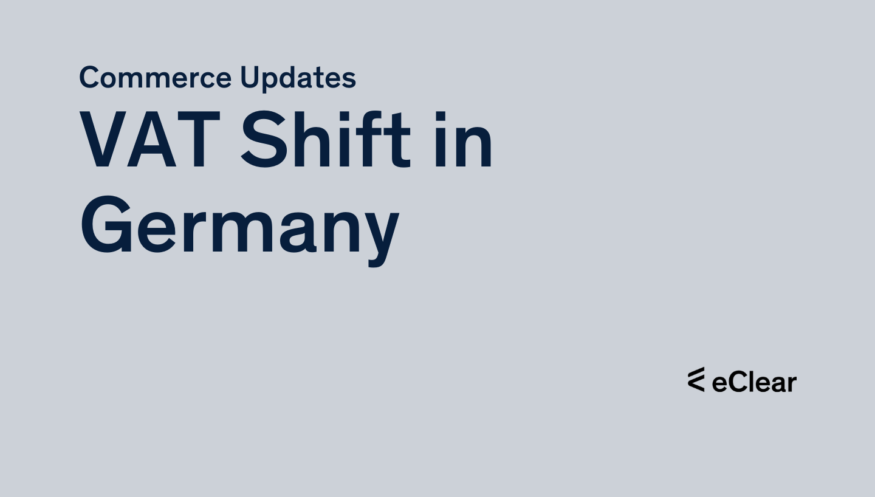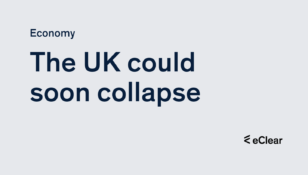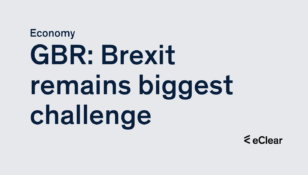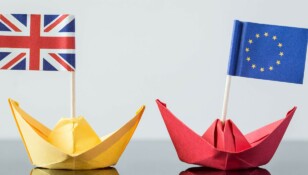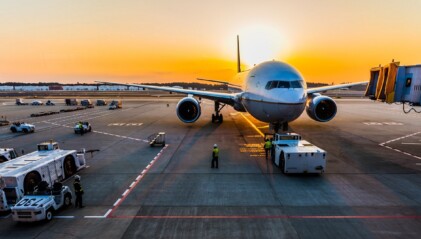Germany is facing a far-reaching reform of its tax system. The Growth Opportunities Act, a comprehensive bill for investment and innovation, is currently in the Bundestag for consideration. Following the federal government’s approval last month, the bill is expected to complete its parliamentary journey by mid-December 2023. Unless otherwise specified, The new regulations will come into force in 2024.
A new age of e-invoicing
One of the most striking changes is the introduction of electronic invoicing in Germany. In 2025, this will be voluntary, but 2026 will be mandatory. This marks a significant change in the way businesses conduct transactions. The switch to e-invoices is not only intended to increase efficiency but also to increase transparency in accounting.
Environmental responsibility through carbon certificates
In the spirit of environmental responsibility, the draft bill proposes the introduction of a domestic reverse charge for carbon allowance trading. This could significantly change the dynamics of this emerging market. The measure aims to reduce CO2 emissions and encourage companies to act more sustainably.
Relief for the SME sector
The law also plans to raise the threshold for VAT actual taxation from €600,000 to €800,000 annually. In addition, small taxpayers will no longer have to make advance payments if their annual VAT burden does not exceed €2,000, compared to the previous limit of €1,000. These changes are intended to relieve the burden on small and medium-sized businesses and improve their liquidity.
Support for non-profit organisations
As a sign for the social sector, the law applies a reduced VAT rate for services provided to non-profit and charitable organisations. This could alleviate the financial pressure on these critical institutions and promote their work in social and charitable projects.
New VAT Rules in EU-UK Trade Deal
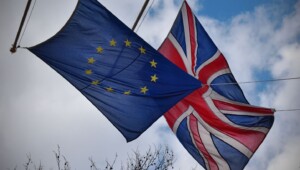
The European Union is set to make crucial decisions regarding its administrative cooperation with the United Kingdom on Value Added Tax (VAT) and the recovery of taxes and duties. A proposal for a Council Decision has been put forth, outlining the EU’s position in the Trade Specialised Committee on Administrative Cooperation in VAT and Recovery of Taxes and Duties. This committee was established as part of the Trade and Cooperation Agreement between the EU and the UK.
The proposal aims to implement protocols to enhance administrative cooperation and combat fraud in VAT. It also seeks to facilitate mutual assistance to recover claims related to taxes and duties. The committee will address various matters covered by the VAT Protocol and is expected to adopt decisions or recommendations that implement all aspects of the Protocol.
Among the proposed decisions are introducing electronic forms, rules for tax recovery requests, and establishing a Service-Level Agreement. The proposal also outlines the financial contributions expected from the UK.
The Council of the European Union is tasked with establishing the EU’s position on these matters. Significantly, the proposal does not alter the substance of the Trade and Cooperation Agreement (TCA) between the EU and the UK and does not necessitate an impact assessment. The procedural legal basis for the proposal is Article 218(9) of the Treaty on the Functioning of the EU.
The move comes as the EU and the UK aim to streamline their administrative processes and clamp down on tax evasion while navigating the complex post-Brexit landscape.
HMRC Revamps VAT Agent Rules

The UK’s HM Revenue and Customs (HMRC) is set to change how agents are authorised for Value Added Tax (VAT) services. Starting from October 2023, the functionality that allows agent authorisations for VAT to be copied across to the agent services account will be removed. This means that agents must use a new authorisation service available in the agent services account (ASA), which involves sending a link to the client for acceptance.
A Digital Shift
The change signifies a more digital approach, as paper authorisations will no longer provide access to digital services. Agents are advised to ensure their existing VAT authorisations are copied to their ASA as soon as possible. For firms with multiple online services for agent accounts, the process must be completed for each account.
What It Means for Agents and Clients
If clients need help to complete the authorisation digitally, they can contact HMRC’s extra support team for assistance. The agent will need to generate the link so that HMRC can complete the process on behalf of the client. This change is part of HMRC’s broader efforts to streamline tax services and comes as the latest in a series of updates aimed at modernising the UK’s tax system.
The new rules are expected to impact how agents interact with VAT services, pushing for a more digital-first approach. While existing VAT authorisations will remain unaffected, the change will likely necessitate adjustments in how agents manage new VAT clients.
UK Updates NI Customs Duty Rules
The UK has updated its customs duty rules for goods moved between Great Britain and Northern Ireland, introducing a broader definition of goods considered “at risk” of entering the EU. The changes are part of the Customs (Northern Ireland) (EU Exit) (Amendment) Regulations, SI 2023/958, and are based on Decision No. 1/2023 of the UK Withdrawal Agreement Joint Committee. These new rules are aimed at implementing the Windsor Framework agreement.
A New Retail Movement Scheme
The Windsor Framework (Retail Movement Scheme: Public Health, Marketing, and Organic Product Standards and Miscellaneous Provisions) Regulations, SI 2023/959, have established a new ‘Northern Ireland Retail Movement Scheme’ for agri-food goods. This means that such goods can now be moved from Great Britain to Northern Ireland under GB standards for public health, thereby avoiding the need for physical inspections per EU rules.
EU Targets Big Tech with DMA Rules

In a landmark move, the European Commission has designated six major technology companies—Alphabet, Amazon, Apple, ByteDance, Meta, and Microsoft—as “gatekeepers” under the Digital Markets Act (DMA). This designation subjects these companies to various new obligations to foster fair competition and consumer choice in the digital marketplace.
A New Regulatory Landscape
The DMA, which came into force in November 2022 and has been applied since May 2023, aims to prevent these gatekeepers from imposing unfair conditions on businesses and consumers. The designation follows a 45-day review process and marks the first time the Commission has taken such action under the DMA. The companies have six months to fully comply with the DMA’s obligations for each designated core platform service.
Investigations and Exemptions
In addition to the designations, the Commission has opened four market investigations to further assess submissions by Microsoft and Apple, arguing that some of their core platform services, such as Bing, Edge, and iMessage, do not qualify as gateways. A separate investigation will also assess whether Apple’s iPadOS should be designated as gatekeepers. Interestingly, Gmail, Outlook.com, and Samsung Internet Browser were not set as gatekeepers, as Alphabet, Microsoft, and Samsung provided sufficiently justified arguments against such a designation.
Penalties and Future Implications
Companies failing to comply with the DMA’s obligations could face fines of up to 10% of their worldwide turnover, increasing to 20% for repeated infringements. In systematic violations, the Commission can impose additional remedies, such as forcing a gatekeeper to sell parts of its business or banning it from acquisitions related to non-compliance.
The DMA represents a significant shift in the regulatory landscape for European digital markets. It aims to ensure that digital markets remain open and contestable, particularly in the face of the economic power wielded by a few major tech companies. With these designations, the European Commission is sending a strong message: the era of unchecked power in the digital realm may end.
eBay CEO Unveils Tech-Driven Strategy

To outmanoeuvre emerging rivals like TikTok and Shein, eBay’s CEO Jamie Iannone has unveiled a forward-thinking strategy in an interview with businessinsider.com that leans heavily on artificial intelligence (AI) and live commerce. Despite a 5% year-over-year revenue growth to $2.5 billion, eBay saw a 2% dip in its gross merchandise value for the second quarter, prompting a reevaluation of its game plan.
Iannone, who took the helm in April 2020, has been focusing on “enthusiast” shoppers who make at least six purchases and spend a minimum one of $800 annually on eBay. These enthusiasts, he says, account for a staggering 70% of the site’s sales, spending more than $3,000 a year on average.
The company’s new strategy aims to build on this foundation by offering more relevant experiences for both buyers and sellers. This includes using AI to create “magical listings,” which automatically generate product descriptions based on various inputs from the seller. The next iteration of this technology will feature image recognition, allowing sellers to create listings based solely on a photo.
Live commerce, a shopping trend that has gained traction in China but has yet to break through in the US, is another avenue eBay is exploring. Early pilots have been promising, with over 100 sellers participating and generating over $1 million in total sales.
While eBay has long contended with giants like Amazon and Walmart, it now faces a new set of competitors that emphasise low prices and have made significant inroads in the US market. Iannone, however, remains unfazed, stating that eBay’s scale will be its greatest asset against these emerging threats.
The CEO highlighted eBay’s focus on building trust through authentication programs. These initiatives, he believes, will retain existing customers and attract new ones despite a 3% year-over-year decrease in the platform’s active buyer base to 131 million.
As eBay looks to the future, Iannone is confident that its strategic evolution, underpinned by technological innovation, will keep it competitive in an increasingly crowded marketplace.
Germany’s retail industry in the digital trap
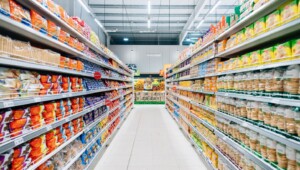
As a study by IFH Cologne and the wholesale platform Faire shows, Germany’s retail sector is facing a paradoxical challenge. Although more than 60 per cent of independent retailers see no need for digital solutions or feel overwhelmed by the complexity of digitalisation, there is a noticeable willingness to change. Sixty-four per cent of the retailers surveyed are open to digital sourcing options. The problem, however, lies in the implementation: 22 per cent of retailers feel overwhelmed by the digital offer and just as many do not have the necessary expertise to deal with digitalisation.
The industry traditionally focuses on personal customer contact and the physical shopping experience. These strengths seem to directly conflict with digitalisation, which many perceive as impersonal and complex. In discussions on the topic, it became clear that “digitalisation” is a deterrent for many retailers. It suggests a radical business model transformation instead of being understood as a series of more minor, practicable improvements in everyday work.
Another hurdle might lie in the way the digital economy itself works. Using buzzwords and complex technical terms creates a barrier that deters many traditional retailers. In this context, the topic should be made more human to show how retailers can perform administrative tasks more easily and quickly.
The study suggests that scepticism of the new and unknown is widespread in the industry. Many retailers see the switch to digital processes as expensive, complicated and uncertain. At the same time, the potential of digital solutions to improve business is greatly underestimated. There is, therefore, an urgent need to make the benefits of digitalisation more visible and to encourage retailers to test new processes on a small scale. Only in this way can the German retail sector emerge from its digitalisation rigidity and take full advantage of the opportunities offered by modern technology.
Netherlands Expands VAT Scheme to EU

To foster economic inclusivity within the European Union, the Netherlands is set to extend its Small Business VAT scheme, known as KOR, to foreign EU companies by 2025. The scheme currently allows Dutch businesses with an annual turnover not exceeding EUR 20,000 to be exempt from VAT obligations. Starting from January 2025, EU companies with a yearly turnover not exceeding EUR 100,000 will also be eligible for this special VAT regime.
A Level Playing Field for EU Businesses
Extending the KOR scheme to EU companies is a significant step towards creating a level playing field for businesses across the EU. It allows companies established in other EU Member States to benefit from the same VAT exemptions as Dutch businesses, provided they meet the turnover criteria.
Exclusions and Limitations
It’s important to note that the scheme does have its limitations. Certain transactions are excluded, such as the supply of new means of transport to another Member State, immovable property, and related rights.
Implications for EU Economic Policy
This policy change could set a precedent for other EU countries to follow, potentially leading to a more unified and equitable economic landscape across the Union. It also raises questions about how such schemes could impact intra-EU trade and whether they could serve as a model for broader fiscal policies within the EU.
Portugal Prolongs Zero VAT on Food

Portugal has decided to extend its zero VAT rate on essential food items until the end of 2023, costing the government €140m ($149.8m), reports just-food.com. Initially launched in April for six months, the tax holiday covers 46 everyday food products, including fruits, vegetables, meat, fish, dairy, and bread. The government stated that the initial phase led to nearly a 10% drop in consumer prices between April and August. Mariana Vieira da Silva, Minister of the Presidency, announced the extension, citing the VAT measure’s success in reducing food prices and easing inflation.
A Successful Anti-Inflation Measure
The VAT exemption has been deemed a success, contributing to a significant decline in food prices and easing inflation from 15.4% to 7.3% in August. Despite the improvement, the rate of price increases remains higher than the government’s medium-term goals, prompting the extension.
Multi-Million VAT Scam: 7 Found Guilty

In a Danish landmark case, seven individuals identified as T1 to T7 have been found guilty of severe violations of the VAT Act, the Withholding Tax Act, and the Collection Act. The Court determined that the defendants were involved in 14 main companies, issuing fictitious invoices for selling goods and services from various temporary employment agencies they controlled. The fraudulent activities resulted in a total evasion of DKK 20,001,561 (approx. €2,686,000) in VAT, DKK 3,563,705 (approx. €478,000) in A-tax, and DKK 715,840 (approx. €96,000) in AM contributions.
A Web of Deception
The court found that the invoiced goods were never delivered to the main companies, and the employees listed on the invoices were employed by these companies, rendering the invoices fictitious. The court also noted that the companies partially operated from the same premises where T1, T3, and T6 had offices and were present daily. Financial records of the 14 main companies were also found at these premises.
Harsh Penalties
T1 was sentenced to 2.5 years and fined DKK 9,850,000 (approx. €1,322,000). T2 received a 4-year prison sentence and a permanent entry ban. T3 was sentenced to 1.5 years in partly conditional prison and fined DKK 5,575,000 (approx. €748,000) after an appeal. Other defendants received varying sentences, including dependent prison terms and hefty fines.
Appeals and Future Implications
T3, T6, and T7 appealed the City Court’s judgment, seeking either acquittal or reduced penalties. The Eastern High Court upheld the City Court’s ruling with some modifications. The case serves as a stern warning about the severe consequences of VAT fraud. It will likely have broader implications for how such cases are handled.
